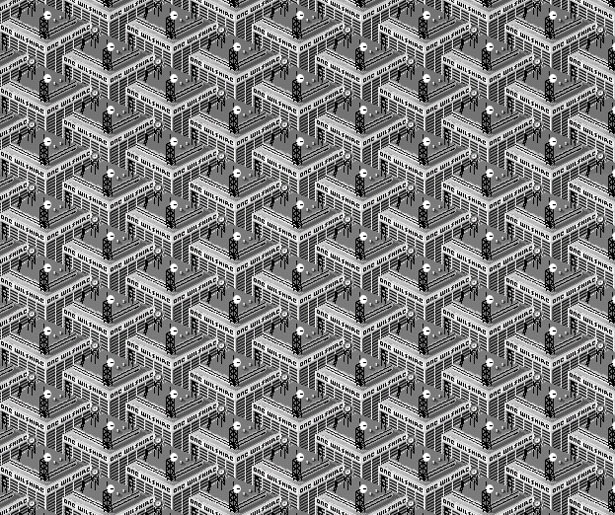Ether 17 The Metropolis is Complete

If, as we have already established, the new is now simply another aspect of the already-existing, all we can do is recycle old things in phases to make them newly desirable commodities again, just as One Wilshire was recycled into a citadel for immaterial culture. Supply and demand emerge out of what is already lying around.
The difference between immaterial culture and the material culture that preceded it is that not only have none of the physical elements of society changed, they will never need to be changed again. The metropolis is complete. Only our relationship to the elements of the world around us is freed of permanence and keeps moving.
Either things don’t mean anything anymore, or we don’t, or both.
Although nothing has a universal meaning or a lasting value, objects still convey provisional meanings and attain temporary values created on the fly, often for very short durations. For a month a Beanie Baby is worth $1,000. The next month it is worth $3 again. This doesn’t mean that anything goes. Objects can still only function within a system. The empty promise of objects is precisely what allows them to remain vital. There is no longer a fixed natural state of identity or being. All that is left is desire and the craving for its impossible satisfaction.
Value is now a commodity in and of itself, regularly sought out and consumed. All objects and all people are members of a giant stock exchange, not as investors on the floor, but as flickering numbers running across a banner, some rising, some falling, but always moving up and down.